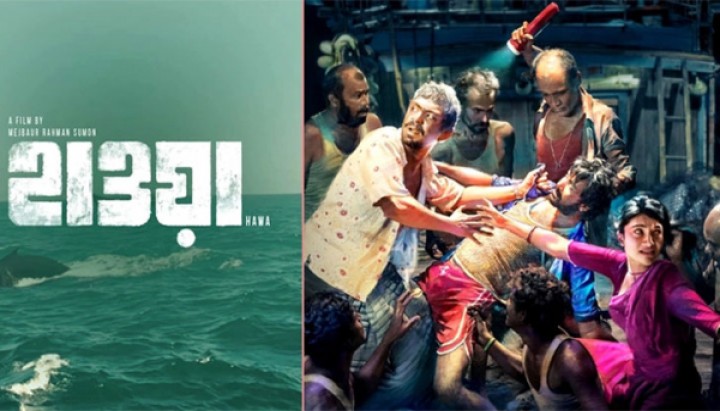"The Zone of Interest" stands out as one
of the most daring films of recent times. Jonathan Glazer’s latest work is a
radical experiment in perspective, limiting the audience’s view of atrocities
while adopting that of the perpetrators. From the outset, Glazer establishes
his formal concept, keeping all the horrors of Auschwitz just outside the frame
and instead focusing on a blissfully unaware Nazi family going about their
daily routines near the camp. This approach effectively communicates society’s
ability to compartmentalize evil and ignore its own complicity, a message that
resonates more loudly and clearly than the offscreen screams in the soundtrack.
Reviewers have often referenced Hannah Arendt's
quote about the banality of evil when discussing this film. Her study of a Nazi
bureaucrat who committed monstrous deeds while maintaining an ordinary demeanor
mirrors the unsettling idea conveyed repeatedly in Glazer’s film.
There’s nothing wrong with a film that clearly
conveys its message, especially when that message remains profoundly relevant.
However, after two hours of variations on a rigid stylistic framework, the film
takes a dramatic turn in its final scene. This rupture in time and space breaks
the movie’s strategic tunnel vision, revealing a glimmer of dawning awareness.
If the rest of the film is hard to misinterpret, its ending is rich with
interpretive possibilities, an enigmatic ellipsis.
In the closing minutes, the setting shifts to
Berlin, far from the concentration camp overseen by Rudolf Höss (Christian
Friedel). Höss leaves a disturbingly mundane Nazi office party, held in honor
of his heinous new mass-extermination plan. After boasting to his wife over the
phone, he hangs up, leaves his office, and wanders through the darkened
government building. Suddenly, he feels the urge to vomit on the stairs. As he
stumbles onto a new floor, he is met with a vision of the future: Auschwitz,
now a museum commemorating his victims.
The popular interpretation of this ending is that
Höss is finally confronted with the enormity of his role in Hitler’s Final
Solution. He retches because the horrifying truth has found him in the terrible
quiet and darkness. For a moment, his sociopathic detachment falters. In a
recent interview, Friedel reinforced this interpretation, saying, “I think it’s
a fight: body against his soul. Because the body tells the truth and our mind,
we can betray ourselves. We are masters of self-deception.” Friedel also noted
a relevant inspiration for him and Glazer: the final scene of the documentary
"The Act of Killing," where a genocidal Indonesian gangster, Anwar
Congo, also breaks into a fit of retching, as if finally overcome by his actions.
Still, it's worth considering an alternative reading
of the movie's ending. What if Congo, a self-professed movie buff who sometimes
modeled his murders on action and crime films, was performing a moral awakening
for the cameras? What if his remorse was as calculated as his gangster swagger?
Similarly, Höss might be experiencing a different kind of rude awakening in
"The Zone of Interest" — not the emergence of a conscience but rather
the realization of his insignificance in the grand scheme of things.
Glazer doesn’t present a clear portrait of moral
culpability. For one, the retching occurs before the vision, complicating any
straightforward sense of cause and psychological effect. Is Höss feeling the
physical shockwaves of the truth that his premonition will further illustrate,
or did he simply drink too much at the party? Reversing the order of events
avoids the simple dramatic optics of an unapologetic war criminal feeling a
pang of regret. It’s notable that the movie ends in 1943, two years before
Germany surrendered. The real-life Höss did not have an Oskar Schindler moment;
he continued serving Hitler’s vision and remained unrepentant until shortly
before his execution. An American psychologist who spoke with Höss wrote of
him: “There is too much apathy to leave any suggestion of remorse.”
So, if it’s not guilt that overwhelms the character
in the final minutes, unsettling his stomach and mind, what does? Perhaps
something smaller and more trivial. "The Zone of Interest" portrays
Höss as a bureaucratic monster: a mass murderer who views the Holocaust as a
mere professional accomplishment. Friedel discovered a telling quote from the
real commandant during his research: “It was my job, and I want to be the best
at my job.” Höss wasn’t just “following orders” — he was trying to follow them
exceptionally well, to earn a gold star.
Thus, perhaps what he sees at the end of the hall is
a future where no one appreciates what he’s done — not the technological
ingenuity of his murders, nor the efficiency of the camp under his leadership.
People will visit Auschwitz to honor his victims, not him. He becomes a
footnote in history, remembered as a mere cog in the death machine, if at all.
The final words Höss utters involve gloating about naming a future act of genocide
after him, highlighting his preoccupation with his professional reputation. The
historical irrelevance of that concern is what turns his stomach.
In a way, the brief vignette Glazer cuts to — an
observational, quasi-documentary of janitors cleaning what is now a museum —
mirrors Höss’s blinkered thinking, even as it offers a deliberate break from
it. Auschwitz remains a workplace. The custodians we see calmly dusting its
surfaces are doing a job, just as Höss was. If there’s any correlation between his
nausea and the vision, it probably lies in his realization that he’s nothing
more than a custodian of atrocities. The ending is a distorted version of a
workaholic’s nightmare: his labor will not be celebrated, and his Employee of
the Month certificate will come down. Ultimately, "The Zone of
Interest" depicts genocide as a line item on a middle manager’s résumé.
Even as Glazer shifts scenes, he maintains that disturbing framework.
That said, the ending extends beyond Höss’s specific
guilt, highlighting the barriers the entire world erects between itself and
unspeakable horrors. The final cutaway suggests that it’s easier to condemn
evil in hindsight — to view it as a dark chapter of history, a horror we can
study behind glass but no longer prevent. Yet, the evil of the Holocaust isn’t
just a past issue. It manifests in new forms continually, ignored and condoned
as we speak. Tomorrow’s somber memorials are today’s atrocities happening just
over the garden wall.
Within this film, audiences also witness how
sanitization can serve as a tool for erasure. Through Glazer's lens, we catch a
glimpse of its alternative use: maintenance. The portrayal of how history is
remembered, and current events are noted — be it through propaganda,
photography, video, or the internet — illustrates an ongoing interplay between
the actual truth and its edited versions. The timing of "The Zone of Interest"
release, amidst global powers' narrative manipulation to sanitize their
misdeeds, amplifies the chilling effect of Glazer's imagery. His weaving
together of past and present, the contrast between appearance and truth, life
and annihilation, assumes an undeniable significance.









